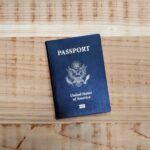Welcome to FindBiometrics’ digest of identity industry news. Here’s what you need to know about the world of digital identity and biometrics today:
Nigeria Police Force Collects Officers’ Biometrics
Administrators of the Nigeria Police Force have launched a new digitization program for the records of its personnel, with the collection of officers’ biometrics being a key component. In a statement, a spokesperson for the police agency explained that the effort “to simplify the management of NPF personnel records, manage the entire workforce of the police, uniquely manage and identify each personnel of the NPF,” adding that “it is structured with modern technological concepts to monitor the distribution of personnel workforce and access across the country.” The fingerprint and face biometrics of police are being collected.
Sierra Leone Embraces ECOWAS ID
Sierra Leone has officially adopted the ECOWAS ID card, joining other members of the Economic Community of West African States including Benin, Gambia, Ghana, Guinea-Bissau, and Senegal. The card is being used in a national, biometric ID program, with sensitive data stored on each card’s embedded chip. “With the chip-based biometric ID, banks, forex bureaus, micro-finance institutions, mobile money providers, and other financial service providers, among others, can now easily and effectively carry out the electronic know-your-customer (eKYC) process to authenticate and verify their customers at far lower costs for trusted financial transactions across Sierra Leone,” said the country’s President, Julius Maada Bio.
Namibia Mobile Operator Makes Biometric Registration Mandatory
MTC, the biggest mobile network operator in Namibia, has made biometric registration mandatory for its customers, entailing the collection of fingerprint and face biometrics. Since implementing the policy, the company says it has seen an 80 percent fraud reduction. While a growing number of countries have made biometric SIM registration mandatory, MTC is notably for doing so without a government mandate, and finds itself making some effort to persuade customers that there is “nothing illegal” about what it’s doing.
Yoti Launches Selfie e-Signature Solution
Yoti has launched a new digital signature solution that revolves around selfie-based identity verification during the signing process. Key to the eSign with Selfie solution is Yoti’s liveness detection system, MyFace, which is used to verify that each signatory in an online transaction is a real person who is present at their device. The solution links a given signatory’s selfie image to their digital signature, offering a high level of identity assurance for the transaction.
Regula’s Document Database Expands
Regula’s document template database now has more than 12,000 templates after adding about 2,200 last year, the company has announced. Examples of the newer editions include ePassports from Belize, Switzerland, and Turkey, and new Aruban and Italian ID cards, among others. Regula says its e-document database now includes over 1,600 e-documents such as e-passports and digital driver’s licenses.
IDEMIA Sets Up PreCheck Enrolment Station at PDX
IDEMIA has set up a new TSA PreCheck enrolment station at the Portland International Airport, allowing travelers flying out of PDX to enroll in the expedited security screening program without an appointment. “IDEMIA is a leader in identity verification and validation solutions, and we are constantly looking at ways to improve TSA PreCheck enrollment for travelers,” said Lisa Sullivan, the SVP of Travel and Transport for IDEMIA I&S North America. The news comes after IDEMIA’s announcement of price reductions for the PreCheck program in November.
NBS Secures Contact Centers With Voice Recognition
Nationwide Building Society, a UK-based financial services cooperative with more than 16 million members, is using EVA Forensics’ voice recognition system to secure its contact centers against fraud. The system enables Nationwide to enroll the voice biometrics of known fraudsters and other malicious actors so that it can detect them should they try to call into NBS’s contact centers in the future. NBS also embraced selfie-based biometric identity verification, care of Jumio, in early 2022.
UK Information Commissioner Concludes School Biometrics ‘Case Study’
The UK’s Information Commissioner’s Office (ICO) has weighed in on a controversial deployment (since suspended) of facial recognition technology in the North Ayshire school system. The technology was deployed in 2021, with the aim of letting students get their school lunches more quickly by confirming their cafeteria transactions with a face scan, but it was halted after privacy concerns were raised. The ICO has now concluded that the deployment likely violated the UK General Data Protection Regulation (GDPR), in part because there were not satisfactory consent and data retention protocols in place; and the Office says it will turn the investigation into a case study for the benefit of other education authorities seeking to deploy biometric tech.
–
February 1, 2023 – by Alex Perala
Want to get the identity news digest early? Become a member and get the digest sent straight to your inbox, before it’s published on FindBiometrics:









Follow Us